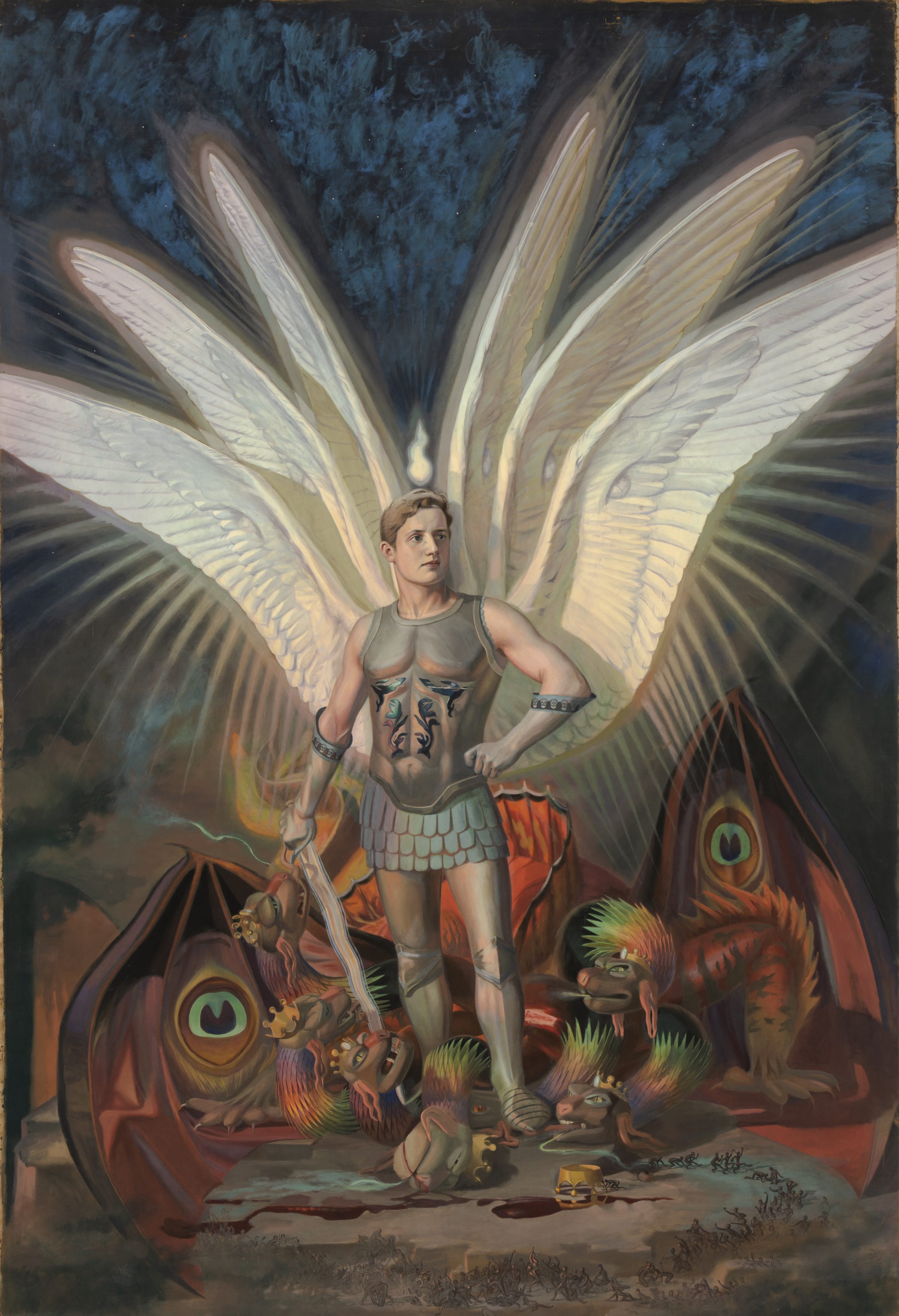Torsten Wasastjerna – A World of Fairy Tales and Fantasy 11.5–11.9.2022
11.5–11.9.2022

A lost fairy tale world comes back to life
Torsten Wasastjerna (1863–1924) was an important artist in the Golden Age of Finnish art. He produced most of his art between the 1880s to the 1910s. Wasastjerna studied in Düsseldorf and Paris and shifted away from realistic landscape painting towards Impressionism and Symbolism. The new exhibition presents his entire spectrum of his artistic output, from the paintings he produced in Düsseldorf to the landscapes of his last years in the 1920s.
At the turn of the 20th century, he painted very large paintings with fairy tale and fantasy themes. Wasastjerna was concerned that the world of fairy tales and fantasy would give way and disappear in the triumphal path of rationalism. In his paintings, Wasastjerna brings to life a lost fairy tale world.
Torsten Wasastjerna was an artist who walked his own path. He believed that even if his contemporaries did not understand his artistic endeavours, future generations would recognise the uniqueness of his art and appreciate it. Perhaps now is the time?
Today, fairy tale and fantasy themes, as well as their visual style, are familiar from fantasy literature and movies, the pictorial tradition of fairy tales, and the aesthetics of computer games. At the same time, we are concerned about the loss of biodiversity and the lack of appreciation for the arts and imagination in this era of efficiency. As a result, Wasastjerna’s paintings feel surprisingly contemporary.
Painter, poet, sculptor, photographer
Wasastjerna was a versatile and prolific artist. He was a good drawer, productive painter, sculptor and graphic artist. In addition, he wrote several poems and other literary publications, practiced photography, played the violin, and even composed some songs based on his own poems. He published numerous books of poetry, prose texts, and pamphlet-like writings, and he sharply expressed his views in newspapers. He was also one of the first modern graphic artists in Finland, although this side of his art has remained quite unknown to subsequent generations. Wasastjerna also worked as a sculptor, but this too has received little attention, as has his ceramic art.
Exhibition and book shed new light on long-forgotten artist
Torsten Wasastjerna has received little attention. The new exhibition at Villa Gyllenberg explores and re-evaluates Wasastjerna’s works within the context of the arts of their time. Some of the paintings, drawings and graphic art in the exhibition have not been on exhibited for over a hundred years, and some are even on public display for the first time ever.
In connection with the exhibition, a new book about Torsten Wasastjerna is being published in Finnish and Swedish. Authored by PhD Erkki Anttonen, curator of the exhibition, Torsten Wasastjerna – Satujen ja fantasian maailma / Sagornas och fantasins värld focuses specifically on the artist’s large-scale Symbolist fantasy and fairy tale themes, which have received little attention in previous research.
Picture: Torsten Wasastjerna, The Angel Michael Defeats the Dragon, 1900–1906. Finnish National Gallery / Hannu Aaltonen.
The museum is open Wed, Sat, Sun 12-17.
Book a tour via villa@gyllenbergs.fi
Read more about admission and opening hours.


